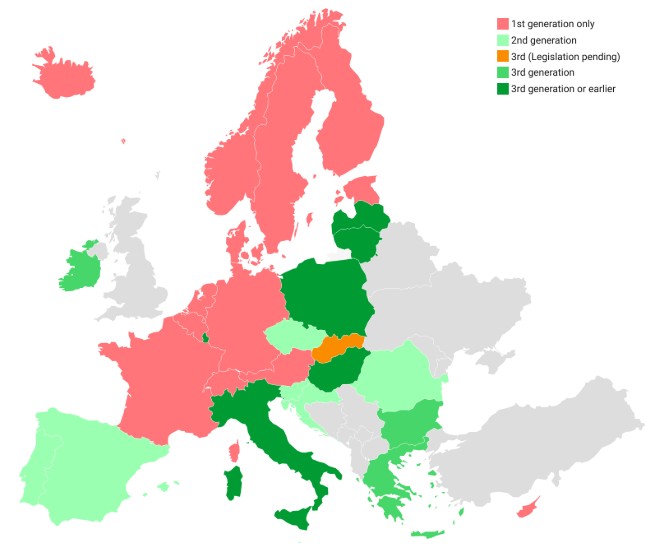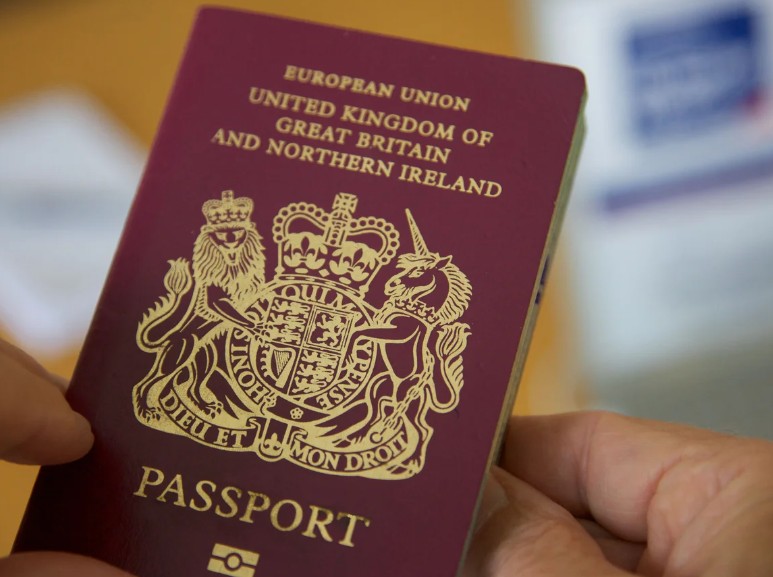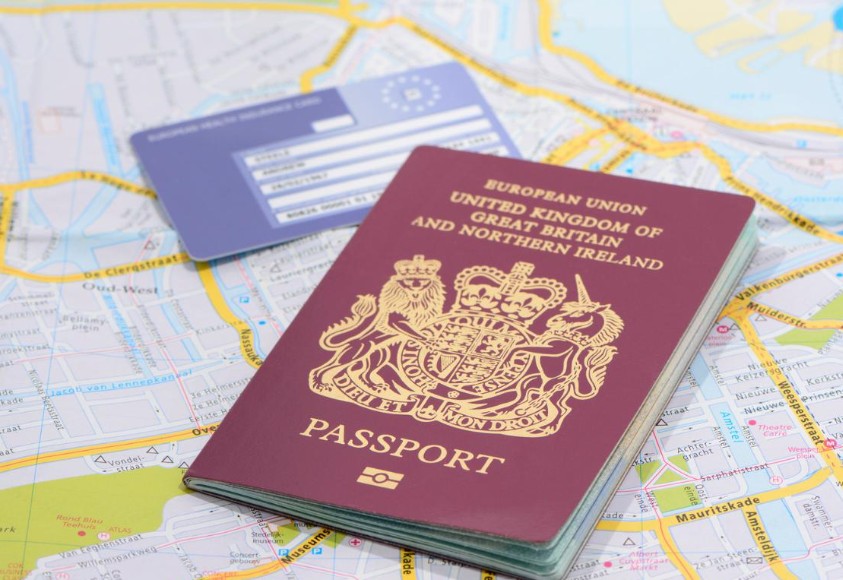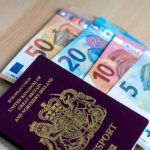Since Brexit, many British citizens have been searching for ways to regain their European Union (EU) citizenship, especially to reclaim the rights and benefits associated with an EU passport. If you are asking yourself How to Get an EU Passport if You Are British, you are not alone. This post will walk you through the different legal routes available for British citizens to secure an EU passport, based on ancestry, residency, or marriage, as well as provide a detailed explanation of what the process involves.
How to Get an EU Passport if You Are British?
The question How to get an EU passport if you are British? This is a question that numerous British citizens have considered in the aftermath of Brexit. Although the UK is no longer part of the European Union, there are still several pathways available for British citizens to obtain an EU passport, provided they meet the legal criteria. The most common routes to obtaining an EU passport involve ancestry, residency, or marriage to an EU citizen. Each of these methods comes with its own set of rules and processes, and they vary from country to country. Below, we’ll break down each path clearly so you can understand your options.
Citizenship by Descent (Ancestry)

If your ancestry traces back to Europe, you could potentially qualify for citizenship in an EU nation through your lineage. This is one of the most popular methods for how to get an EU passport if you are British because it often does not require you to live in the EU. Many European countries offer citizenship through ancestry, and this is available even if your ancestors moved to another country or were born outside of Europe.
Several countries provide the opportunity to acquire citizenship through descent, including:
- Ireland: If you have an Irish grandparent, you can apply for Irish citizenship, which grants you an EU passport.
- Italy: Italy provides citizenship by descent even if your Italian ancestors lived outside the country, often allowing descendants to claim citizenship going back multiple generations.
- Poland: If you have Polish heritage, you may be able to apply for Polish citizenship and, by extension, an EU passport.
The process usually involves proving your ancestry with documentation such as birth certificates, marriage certificates, and other official records that trace your family lineage to an EU citizen.
Citizenship by Residency (Naturalisation)
If you don’t have EU ancestors, you can still apply for citizenship through residency. This is known as naturalisation. Although the process may span several years, it remains a feasible path for individuals who have resided in an EU country for a significant period. While each country has specific residency criteria, typically, you must live there for a set number of years before qualifying for citizenship.
For example:
- Portugal: After 5 years of legal residency, you can apply for Portuguese citizenship and get an EU passport.
- Spain: You generally need to live in Spain for 10 years, but for citizens of former Spanish colonies, this can be reduced to just 2 years.
- Germany: Requires 8 years of residency, with the possibility of shortening the period if you can prove integration, such as through language skills or employment.
In addition to the length of residency, you may need to pass a language test and demonstrate an understanding of the country’s culture and legal system.
Citizenship by Marriage to an EU National

Being married to an EU citizen could open the door to citizenship, as you may be eligible to apply after residing together in an EU country for a certain period. The rules for citizenship through marriage vary by country, but the process is generally faster than applying through naturalisation alone.
For example:
- France: You can apply for French citizenship after 4 years of marriage, provided you have lived together in France for at least 3 years.
- Spain: In Spain, the residency requirement can be reduced to just 1 year for spouses of Spanish citizens, provided you live together in the country.
While marriage to an EU national is an effective route, you will still need to meet certain residency requirements and prove the validity of your marriage.
The Step-by-Step Process to Get an EU Passport if You Are British

Once you’ve determined the most suitable pathway for acquiring an EU passport, here’s a detailed breakdown of the typical steps involved in the process:
- Check Your Eligibility: Understand which route you qualify for — ancestry, residency, or marriage — and collect the necessary documentation, such as birth or marriage certificates.
- Submit Your Application for Citizenship: Whether through descent, naturalisation, or marriage, you’ll need to submit a formal application for citizenship. This may involve filling out forms, attending interviews, and providing supporting documentation.
- Wait for Citizenship Approval: Citizenship applications can take time to process. Depending on the country and the complexity of your case, this can take several months or even years.
- Apply for Your EU Passport: After your citizenship is approved, you can apply for an EU passport. This involves submitting additional documents, such as proof of identity and citizenship, and may take several weeks.
- Celebrate Your EU Citizenship and Passport: Once you receive your EU passport, you’ll have the freedom to travel, live, and work across EU countries.
Why Should You Consider an EU Passport as a British Citizen?
The benefits of obtaining an EU passport go beyond simply gaining the right to travel. Here are some compelling reasons why British citizens may want to pursue an EU passport:
- Freedom of Movement: With an EU passport, you can live, work, and study in any EU member state without the need for additional visas or permits.
- Access to EU Benefits: You’ll have access to EU healthcare, education, and social security benefits.
- Business Opportunities: An EU passport makes it easier to start a business or invest in any of the EU countries, enjoying the same rights as local citizens.
- Dual Nationality: Many EU countries allow dual nationality, meaning you can hold both a British and an EU passport, which gives you greater flexibility.
Common Challenges and Considerations: When Applying for an EU Passport?
While obtaining an EU passport can be highly beneficial, there are several challenges and considerations to keep in mind:
- Complex Documentation Requirements: Proving ancestry, especially for distant relatives, can be challenging. Gathering the necessary paperwork and having it legally verified can take time.
- Residency and Language Barriers: Some countries require fluency in their official language or evidence of integration before granting citizenship.
- Post-Brexit Restrictions: After Brexit, the process may be more complicated for British citizens. Make sure to stay updated on the specific requirements of the country you’re applying to, as immigration policies have changed.
Conclusion: Your Path to an EU Passport
So, how to get an EU passport if you are British? The answer lies in determining your eligibility based on ancestry, marriage, or residency. Each path offers a unique set of requirements, but with the right documentation and commitment, many British citizens can regain their EU citizenship and enjoy the benefits that come with an EU passport.
If you have Irish or other European ancestry, or if you’re willing to spend a few years in an EU country, obtaining an EU passport can open doors to a wide range of opportunities, be it for travel, work, or healthcare. It’s all about finding the path that works best for your situation.
By understanding your options and carefully following the necessary steps, you can successfully navigate the process of acquiring an EU passport and re-establish your ties with the European Union.
Frequently Asked Questions (FAQs) About How to Get an EU Passport if You Are British
How long does it take to get an EU passport if I apply through ancestry?
If you’re applying for citizenship through ancestry, the process can take anywhere from 6 months to 2 years, depending on the country’s processing times and the complexity of your application. Once you are granted citizenship, applying for the passport itself typically takes 1-2 months.
What is the easiest country to get an EU passport for British citizens?
Countries like Ireland, Portugal, and Italy are popular for British citizens because they offer relatively simple pathways through ancestry. Ireland, for example, allows you to claim citizenship if you have an Irish grandparent. Portugal offers a fast-track citizenship process after 5 years of residency.
Are there any restrictions for British citizens after Brexit?
Since Brexit, British citizens no longer automatically enjoy the rights they had as EU members. However, if you qualify for citizenship in an EU country through ancestry or marriage, Brexit does not prevent you from obtaining an EU passport. If you are applying through residency, the rules have changed, and you will need to meet the new requirements set by the country you are moving to.






